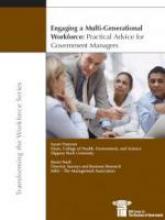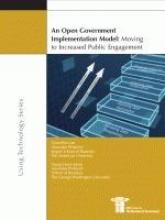
Blog
Wednesday, February 2, 2011
I believe IT is a foundational and critical element to the success of an organization such as [the Department of] Homeland Security. In fact, I would say that it is as important as any function in assuring mission effectiveness today.
by
Tuesday, February 1, 2011
Have you ever led a staff meeting and realized that it was clear that a good chunk of the people there had no clue what you were talking about when you alluded to Howdy Doody, Tonto or Slinkies? Or when new staff seems to be more absorbed in their iPad in
by Dan Chenok
Monday, January 31, 2011
The past year saw significant attention paid to cybersecurity on the Hill, in the Administration, and across the economy. The cyber environment is only growing more prominent, and a number of factors will contribute to its moving front and center for Gove
by Charles Prow
Monday, January 31, 2011
The federal government is looking at Information Technology (IT) Consolidation at way to reduce costs and improve performance. IBM’s success in consolidating its own IT systems and infrastructure provides insight into how adoption of commercial best practices and reduce IT costs while improving performance and increasing service levels.
Friday, January 28, 2011
Articles of interest from around the Web, the week of January 21, 2011
by
Wednesday, January 26, 2011
President Obama committed to reorganizing the government during his State of the Union address. He pointed to examples of how government agencies duplicate and overlap each other in their programs, and how this needs to be fixed. He also noted that it has
Tuesday, January 25, 2011
"We will work together to ensure the public trust and establish a system of transparency, public participation, and collaboration. Openness will strengthen our democracy and promote efficiency and effectiveness in government." President Obama
Thursday, January 20, 2011
What we found interesting the week of January 17, 2011.
by Dan Chenok
Thursday, January 20, 2011
Multiple actions from the Administration have led to a renewed emphasis on protecting information about individual citizens. Although the current activity centers on incentives for consumers, government managers will also be impacted and need to be aware
Wednesday, January 19, 2011
“I think to be a good leader today requires the ability to integrate. It’s about integrating knowledge from disparate fields, learning from that knowledge, and applying it to new problems.”












